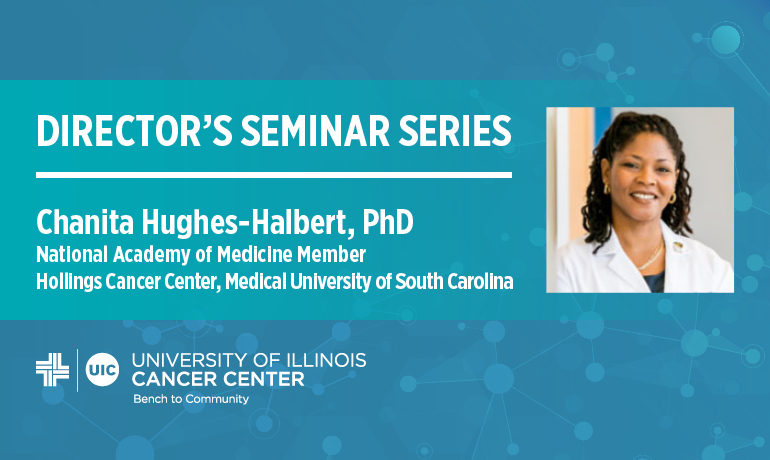
Chanita Hughes-Halbert will present “Participatory approaches for addressing cancer health disparities from the pipette to the people” at the inaugural Director’s Seminar Series on Thursday, March 14. The forum will take place from 1:30 p.m. to 2:30 p.m. at the College of Medicine Research Building’s Moss Auditorium, 909 S. Wolcott Ave.
Hughes-Halbert, PhD, is professor in the department of psychiatry and behavioral sciences, and AT&T Distinguished Endowed Chair for Cancer Equity at the Hollings Cancer Center at the Medical University of South Carolina (MUSC). She is also associate dean for assessment, evaluation and quality improvement at the MUSC’s SmartState Center for Cancer Disparities.
Hughes-Halbert’s research program identifies sociocultural, psychological, genetic and environmental determinants of cancer health disparities, and to translate this information into sustainable interventions in clinical and community-based settings to improve cancer outcomes in racially and ethnically diverse populations. She is a nationally recognized expert in cancer prevention and control among diverse populations, and her research is supported by numerous grants from the National Cancer Institute and the National Institute on Minority Health and Health Disparities.
Previously, Hughes-Halbert has served as a member of the Board of Scientific Advisors at the NCI and the National Human Genome Research Institute Advisory Council. A member of the National Academy of Medicine, Hughes-Halbert is the recipient of numerous honors and awards, including the American Cancer Society’s Cancer Control Award; is chair-elect for the American Association for Cancer Research Minorities in Cancer Research Council; and the MUSC Leadership Fellowship Award. Hughes-Halbert was the first woman and first African American from South Carolina elected to join the National Academy of Medicine. In 2017, she was appointed by President Barack Obama to the National Cancer Institute Board of Scientific advisors. She has authored more than 100 peer-reviewed scientific articles.
